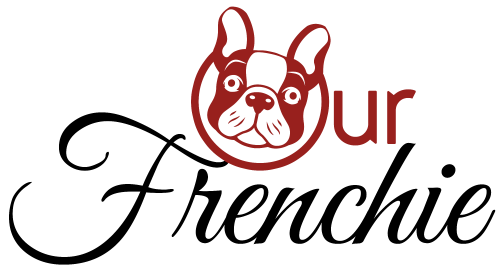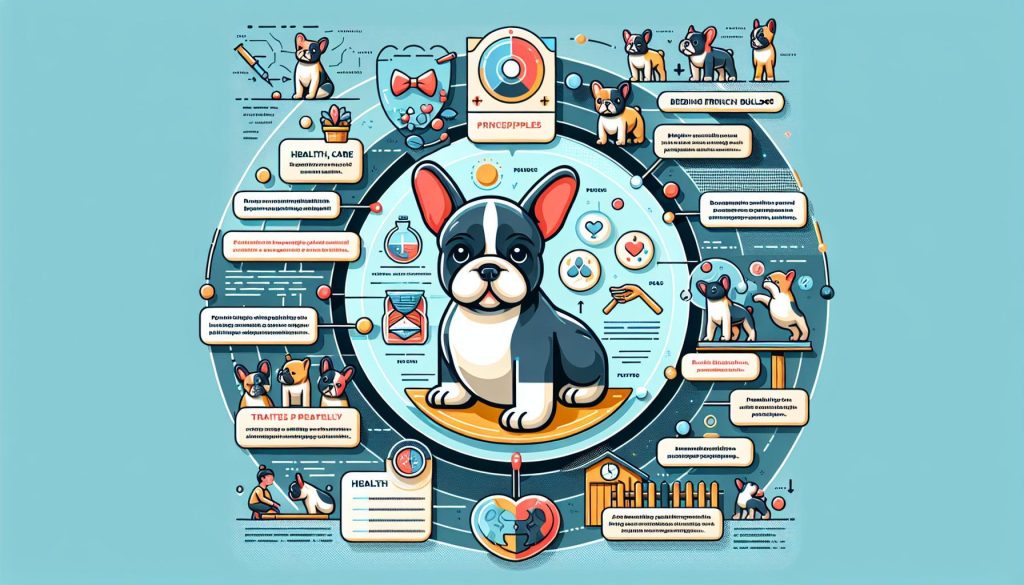About
The Truth About Breeding French Bulldogs
Page Contents
French Bulldogs have captured hearts worldwide with their adorable faces and charming personalities. However, behind their popularity lies a complex and often controversial breeding process. This article delves into the truth about breeding French Bulldogs, exploring the genetic challenges, health implications, and ethical considerations that potential breeders and owners must navigate. As demand for these lovable companions grows, understanding the realities of their breeding is crucial for ensuring their well-being and promoting responsible practices. Join us as we uncover the facts and myths surrounding the world of French Bulldog breeding.
Understanding French Bulldog Genetics
French Bulldogs, with their distinctive bat-like ears and endearing expressions, owe their unique appearance to a complex tapestry of genetics. Understanding the genetic makeup of these charming dogs is crucial for responsible breeding. **Genetics** play a pivotal role in determining not only the physical characteristics but also the health and temperament of French Bulldogs.
At the heart of their genetics are several key traits that breeders need to consider. **Coat color and pattern** are among the most visible genetic traits, with variations ranging from brindle to fawn and pied.These are controlled by multiple genes, including the Agouti and Extension loci. Additionally, the **short, compact stature** of French Bulldogs is the result of selective breeding for specific skeletal traits, but this also predisposes them to certain health issues, such as brachycephalic airway syndrome.
- **Coat color and pattern:** Influenced by multiple genes, including Agouti and Extension loci.
- **Body structure:** Selective breeding for compact stature can lead to health concerns.
- **Health predispositions:** Genetic factors contribute to conditions like hip dysplasia and respiratory issues.
Responsible breeders must prioritize **health screening** to mitigate hereditary health problems. Genetic testing can identify carriers of specific diseases, allowing breeders to make informed decisions that enhance the overall health and vitality of the breed. By understanding and respecting the genetic intricacies of French Bulldogs, breeders can ensure these delightful companions continue to thrive for generations to come.
Common Health Concerns in Breeding
When it comes to breeding French Bulldogs, understanding the common health concerns is crucial. These adorable companions are prone to several health issues due to their unique physical traits. One of the most notable challenges is their brachycephalic nature, which refers to their short skull shape. This can lead to **Brachycephalic Obstructive Airway Syndrome (BOAS)**, causing breathing difficulties, especially in hot or humid weather.
Another prevalent concern is their predisposition to **spinal disorders**. French Bulldogs are known for their compact, muscular build, but this can sometimes result in conditions such as Intervertebral Disc Disease (IVDD). This can lead to pain and mobility issues, requiring careful monitoring and sometimes surgical intervention. Additionally,their distinctive bat-like ears make them susceptible to **ear infections**,which can be mitigated with regular cleaning and vet check-ups.
- **Hip Dysplasia**: A genetic condition affecting the hip joint, leading to arthritis and pain.
- **Skin Allergies**: French Bulldogs often suffer from allergic reactions, necessitating a close watch on diet and surroundings.
- **Eye Problems**: Conditions like cherry eye and cataracts are common, requiring prompt veterinary attention.
Breeding French Bulldogs responsibly involves a thorough understanding of these health concerns and taking proactive steps to manage and reduce risks.regular veterinary visits,a balanced diet,and a healthy lifestyle can substantially enhance their quality of life.
Ethical Breeding Practices Explained
When it comes to breeding French Bulldogs ethically, there are several critical practices that responsible breeders should adhere to in order to ensure the health and well-being of both the puppies and the parent dogs. First and foremost,breeders should prioritize the health of the breeding pair. This means conducting extensive health screenings to rule out genetic disorders and ensuring both dogs are in excellent physical condition before breeding. **Genetic testing** for conditions such as hip dysplasia, brachycephalic syndrome, and other breed-specific issues is essential to minimize the risk of passing on hereditary health problems.
Another cornerstone of ethical breeding is maintaining a **safe and nurturing environment** for the dogs. Breeders should provide ample space, appropriate socialization, and mental stimulation for their animals. Puppies should be raised in a clean, loving environment where thay receive proper nutrition and veterinary care. Early socialization is crucial for French Bulldogs, as it prepares them for various environments and interactions, reducing the likelihood of behavioral issues as they grow.
- **Health screenings** for genetic conditions
- **Safe and supportive environment** for dogs and puppies
- **Proper socialization** and mental stimulation
- **Commitment to breed standards** and avoiding overbreeding
Furthermore, ethical breeders are committed to maintaining the integrity of the breed by adhering to established breed standards. This includes avoiding overbreeding and ensuring that each litter is thoughtfully planned to improve the breed’s health and characteristics.By following these practices, breeders contribute to the sustainability and quality of the French bulldog breed, ensuring that each puppy has the best possible start in life.
Selecting Suitable Breeding Pairs
When it comes to breeding French Bulldogs, choosing the right pairs is crucial to ensure the health and quality of the offspring. **Genetic health** is a top priority, so it’s essential to conduct comprehensive health screenings for potential breeding dogs. This includes testing for common conditions such as hip dysplasia, brachycephalic obstructive airway syndrome (BOAS), and hereditary cataracts. Ensuring both dogs are free from these issues can significantly reduce the risk of passing on genetic disorders to the puppies.
**Temperament** is another critical factor in selecting breeding pairs. French Bulldogs are known for their affectionate and playful nature, so both potential sires and dams should exhibit these traits. A dog with a calm and friendly demeanor is more likely to produce offspring with desirable temperaments.Additionally, consider the following characteristics when evaluating potential breeding pairs:
- **Physical attributes**: Look for dogs that conform to breed standards in terms of size, coat color, and structure.
- **Pedigree**: A strong lineage with a history of healthy ancestors can be an indicator of quality genetics.
- **Compatibility**: Ensure that the pair gets along well, as stress-free interactions can lead to more triumphant mating outcomes.
it’s critically important to consider the **ethical aspects** of breeding. This means prioritizing the well-being of the dogs and avoiding overbreeding,which can lead to health issues and contribute to the overpopulation problem. By thoughtfully ,breeders can contribute positively to the future of the French Bulldog breed.
Nutrition and Care for Pregnant Bulldogs
Providing proper nutrition and care for pregnant French Bulldogs is crucial to ensure the health of both the mother and her puppies. During pregnancy, it’s essential to offer a balanced diet rich in high-quality proteins, healthy fats, and essential vitamins and minerals. Opt for dog food specifically formulated for pregnant or nursing dogs, as these are designed to meet their increased nutritional needs. **Omega-3 fatty acids** are notably beneficial, supporting fetal brain advancement and the mother’s overall well-being.
Along with nutrition, proper care includes regular veterinary check-ups to monitor the health of the mother and her developing puppies.Ensure she has a comfortable, quiet space where she can rest, away from stress and disturbances. **Hydration** is equally critically important,so always provide fresh water. It’s also wise to maintain a moderate exercise routine to keep her muscles toned, which can aid in the birthing process. However, avoid strenuous activities that could cause stress or injury.
- Feed smaller,more frequent meals to accommodate her growing belly.
- Include supplements like calcium to support bone development in puppies.
- Monitor her weight gain to prevent obesity, which can complicate delivery.
- Provide a whelping box lined with soft bedding as she nears her due date.
raising Healthy French Bulldog puppies
Ensuring the well-being of French Bulldog puppies requires a dedicated approach, focusing on their unique needs. **Nutrition** plays a pivotal role in their development. Opt for high-quality dog food that is specifically formulated for small breeds,rich in protein and essential fatty acids,to support their growth and energy levels. It’s crucial to monitor their weight, as French Bulldogs are prone to obesity, which can exacerbate their inherent breathing difficulties.
**Socialization and training** are equally important. Introduce puppies to a variety of environments, people, and other animals early on to foster a well-adjusted temperament. Positive reinforcement techniques work best, as French Bulldogs respond well to rewards and affection.Consistent training sessions will help in managing their sometimes stubborn nature, ensuring they grow into well-behaved companions.
- Provide regular veterinary check-ups to monitor their health.
- Ensure they have a comfortable living environment, avoiding extreme temperatures.
- Engage them in moderate exercise to maintain a healthy lifestyle.
Lastly, pay close attention to their **health care needs**. French Bulldogs are brachycephalic,meaning their short snouts can lead to respiratory issues. It’s imperative to keep an eye on their breathing, especially during physical activities or in hot weather. Regular vet visits will help in early detection of any genetic or health concerns, allowing for prompt and effective treatment.
Legal Regulations and Breeding Guidelines
When it comes to breeding French Bulldogs, understanding and adhering to is crucial. These laws are designed to ensure the welfare of the dogs and maintain breed standards. **In many regions, breeders must be licensed** and register their litters with a recognized kennel club.This not only legitimizes the breeding process but also helps maintain accurate records of lineage and health screenings.
**Key guidelines for ethical breeding** include:
- Ensuring both parent dogs are health-tested and free from genetic disorders.
- Providing a safe and clean environment for the mother and puppies.
- Adhering to age and frequency limits for breeding to prevent health risks to the mother.
Breeders should also stay informed about **local animal welfare laws**, which may impose restrictions on the number of litters a dog can produce per year and dictate proper care standards. Compliance with these laws not only protects the dogs but also enhances the credibility and reputation of the breeder.By prioritizing the health and well-being of the French Bulldogs, breeders contribute to the sustainability and improvement of this beloved breed.
Finding Reputable French Bulldog Breeders
When searching for a breeder, it’s crucial to prioritize ethical practices and the health of the dogs over convenience or cost.Start by looking for breeders who are members of recognized kennel clubs or breed-specific organizations, as these affiliations often require adherence to strict breeding standards. **Reputable breeders** are transparent about their breeding practices and are willing to share information about the health and temperament of their dogs.
Consider the following when evaluating potential breeders:
- **Health Testing:** Ensure that the breeder conducts comprehensive health screenings for genetic conditions common in French Bulldogs, such as brachycephalic obstructive airway syndrome and hip dysplasia.
- **Environment:** Visit the breeder’s facility to observe the living conditions of the dogs. They should be clean,well-maintained,and provide ample space for exercise and socialization.
- **References and Reviews:** Ask for references from past buyers and check online reviews to gauge the breeder’s reputation and the satisfaction of previous clients.
- **Contract and Guarantees:** A trustworthy breeder will provide a clear contract outlining the terms of sale, health guarantees, and a return policy should unforeseen issues arise.
a good breeder will be as interested in you as you are in them. They will ask questions to ensure that their puppies are going to responsible homes and will offer continued support and advice throughout the dog’s life. This mutual commitment is a hallmark of a breeder who genuinely cares about the welfare of their dogs.
Wrapping Up
while French Bulldogs captivate with their charm and personality, breeding them requires careful consideration and responsible practices. Understanding their unique health challenges and genetic predispositions is crucial for ensuring the well-being of future generations. By prioritizing ethical breeding, potential owners and breeders can contribute to a healthier, happier lineage of french Bulldogs.As we continue to appreciate these beloved companions, let’s commit to making informed decisions that prioritize their health and longevity.Together, we can shape a future where French Bulldogs thrive, delighting families with their playful and affectionate nature for years to come.

